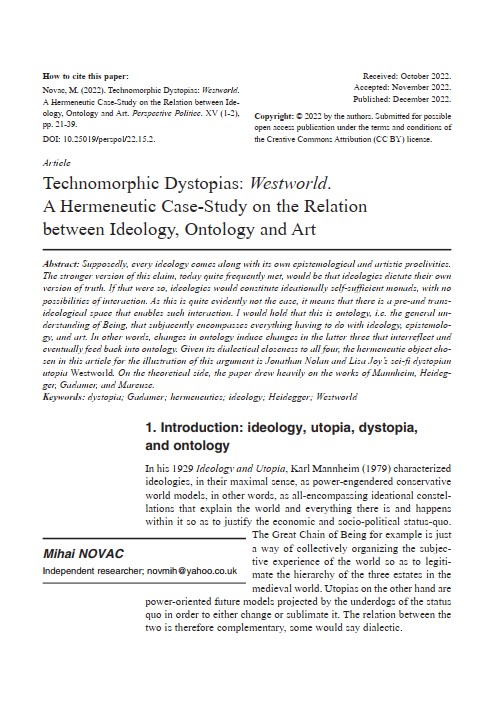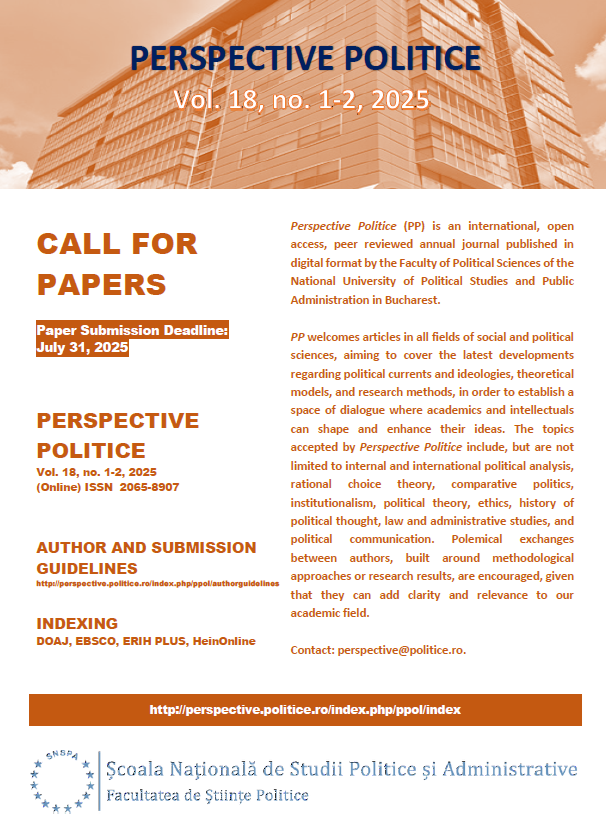Technomorphic Dystopias: Westworld. A Hermeneutic Case-Study on the Relation between Ideology, Ontology and Art
Abstract
Supposedly, every ideology comes along with its own epistemological and artistic proclivities. The stronger version of this claim, today quite frequently met, would be that ideologies dictate their own version of truth. If that were so, ideologies would constitute ideationally self-sufficient monads, with no possibilities of interaction. As this is quite evidently not the case, it means that there is a pre-and transideological space that enables such interaction. I would hold that this is ontology, i.e. the general understanding of Being, that subjacently encompasses everything having to do with ideology, epistemology, and art. In other words, changes in ontology induce changes in the latter three that interreflect and eventually feed back into ontology. Given its dialectical closeness to all four, the hermeneutic object chosen in this article for the illustration of this argument is Jonathan Nolan and Lisa Joy’s sci-fi dystopianutopia Westworld. On the theoretical side, the paper drew heavily on the works of Mannheim, Heidegger, Gadamer, and Marcuse.

Downloads
Published
Issue
Section
License
Copyright (c) 2022 Mihai NOVAC

This work is licensed under a Creative Commons Attribution-NonCommercial-ShareAlike 4.0 International License.



